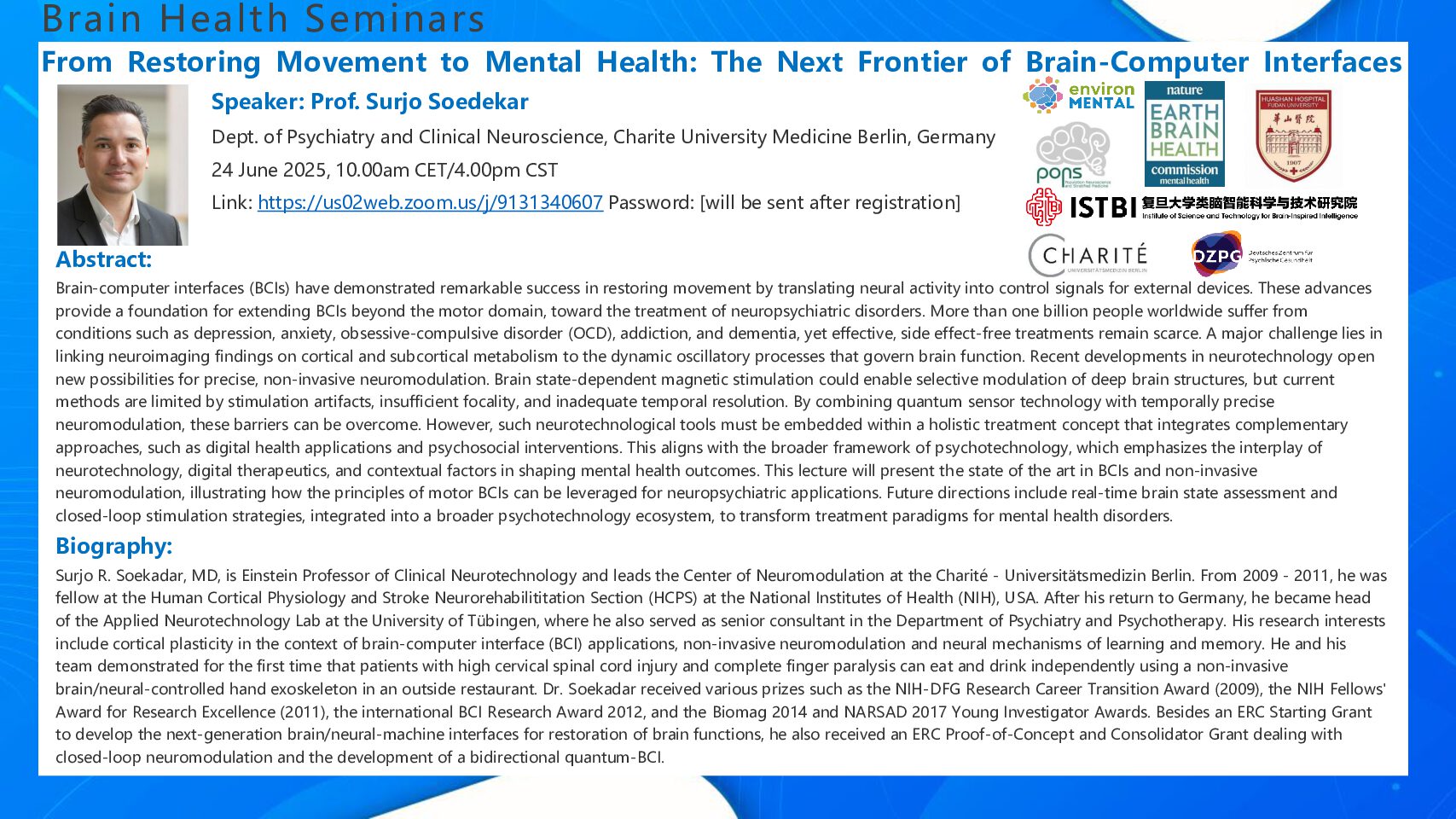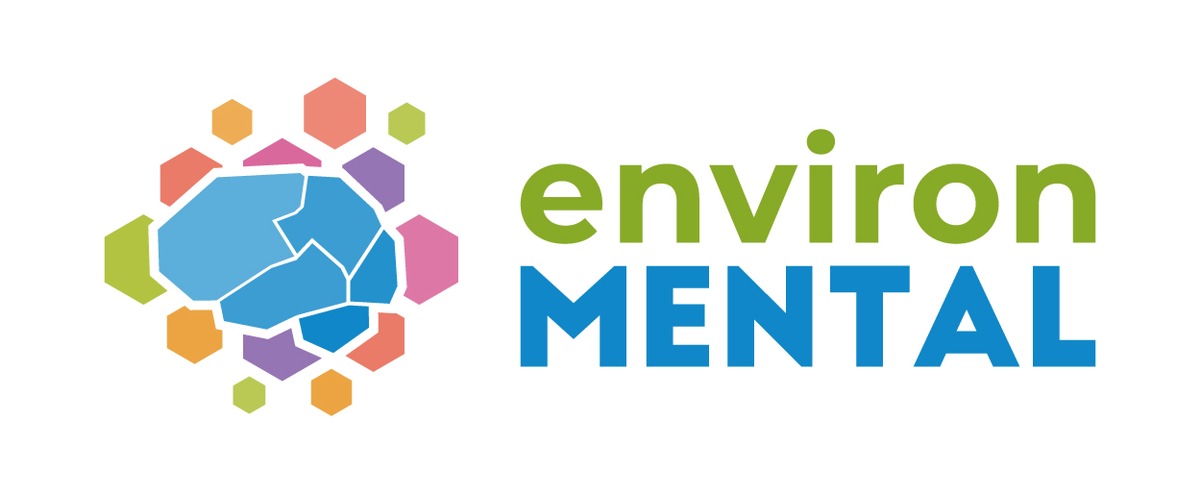From Restoring Movement to Mental Health: The Next Frontier of Brain-Computer Interfaces
Speaker: Prof. Surjo Soedekar
Dept. of Psychiatry and Clinical Neuroscience, Charite University Medicine Berlin, Germany
Date: 24 June 2025, 10.00am CET/4.00pm CST
Link: https://us02web.zoom.us/j/9131340607 Password: [will be sent after registration]
Registration via this link.
Abstract: Brain-computer interfaces (BCIs) have demonstrated remarkable success in restoring movement by translating neural activity into control signals for external devices. These advances provide a foundation for extending BCIs beyond the motor domain, toward the treatment of neuropsychiatric disorders. More than one billion people worldwide suffer from conditions such as depression, anxiety, obsessive-compulsive disorder (OCD), addiction, and dementia, yet effective, side effect-free treatments remain scarce. A major challenge lies in linking neuroimaging findings on cortical and subcortical metabolism to the dynamic oscillatory processes that govern brain function. Recent developments in neurotechnology open new possibilities for precise, non-invasive neuromodulation. Brain state-dependent magnetic stimulation could enable selective modulation of deep brain structures, but current methods are limited by stimulation artifacts, insufficient focality, and inadequate temporal resolution. By combining quantum sensor technology with temporally precise neuromodulation, these barriers can be overcome. However, such neurotechnological tools must be embedded within a holistic treatment concept that integrates complementary approaches, such as digital health applications and psychosocial interventions. This aligns with the broader framework of psychotechnology, which emphasizes the interplay of neurotechnology, digital therapeutics, and contextual factors in shaping mental health outcomes. This lecture will present the state of the art in BCIs and non-invasive neuromodulation, illustrating how the principles of motor BCIs can be leveraged for neuropsychiatric applications. Future directions include real-time brain state assessment and closed-loop stimulation strategies, integrated into a broader psychotechnology ecosystem, to transform treatment paradigms for mental health disorders.
Biography: Surjo R. Soekadar, MD, is Einstein Professor of Clinical Neurotechnology and leads the Center of Neuromodulation at the Charité – Universitätsmedizin Berlin. From 2009 – 2011, he was fellow at the Human Cortical Physiology and Stroke Neurorehabilititation Section (HCPS) at the National Institutes of Health (NIH), USA. After his return to Germany, he became head of the Applied Neurotechnology Lab at the University of Tübingen, where he also served as senior consultant in the Department of Psychiatry and Psychotherapy. His research interests include cortical plasticity in the context of brain-computer interface (BCI) applications, non-invasive neuromodulation and neural mechanisms of learning and memory. He and his team demonstrated for the first time that patients with high cervical spinal cord injury and complete finger paralysis can eat and drink independently using a non-invasive brain/neural-controlled hand exoskeleton in an outside restaurant. Dr. Soekadar received various prizes such as the NIH-DFG Research Career Transition Award (2009), the NIH Fellows’ Award for Research Excellence (2011), the international BCI Research Award 2012, and the Biomag 2014 and NARSAD 2017 Young Investigator Awards. Besides an ERC Starting Grant to develop the next-generation brain/neural-machine interfaces for restoration of brain functions, he also received an ERC Proof-of-Concept and Consolidator Grant dealing with closed-loop neuromodulation and the development of a bidirectional quantum-BCI.


